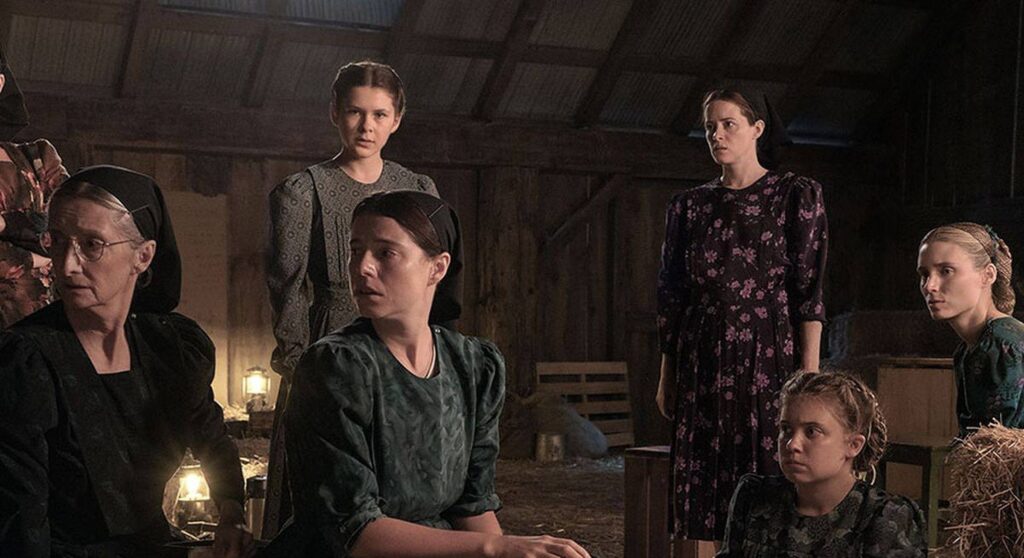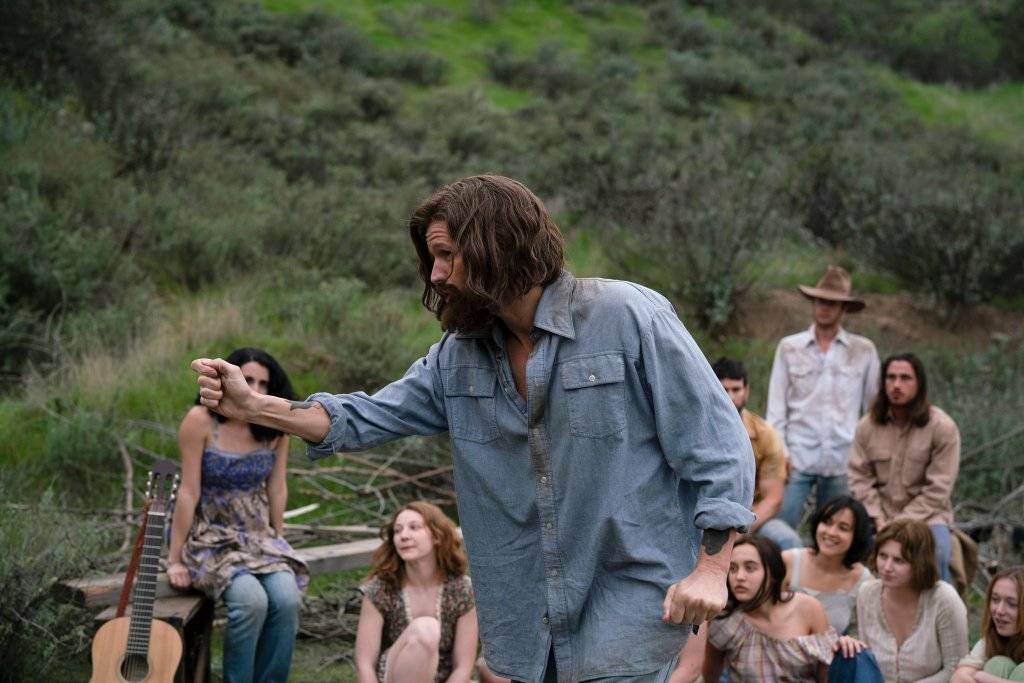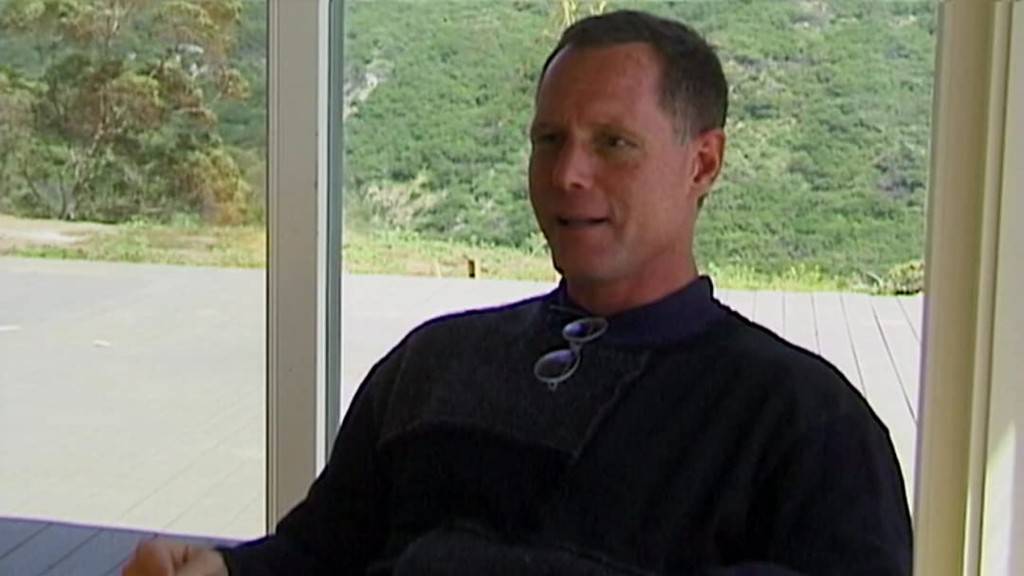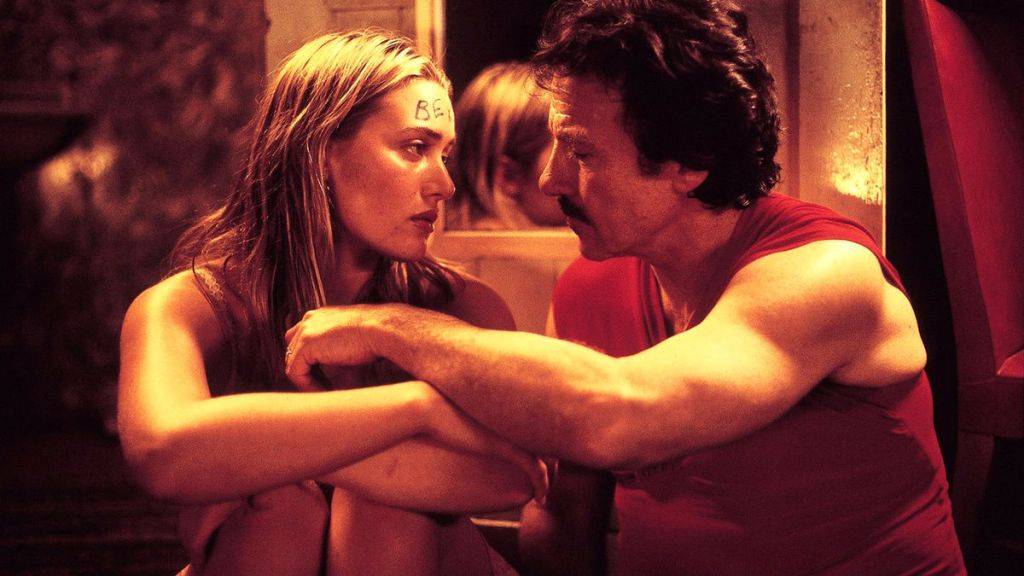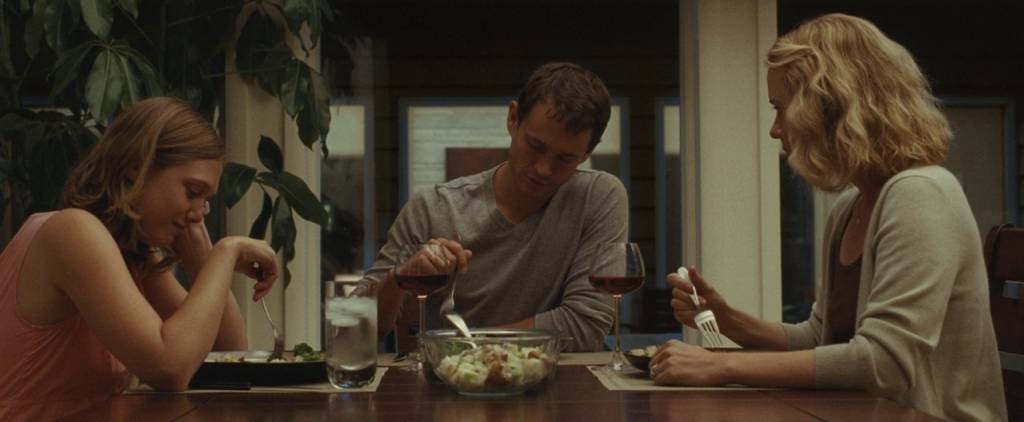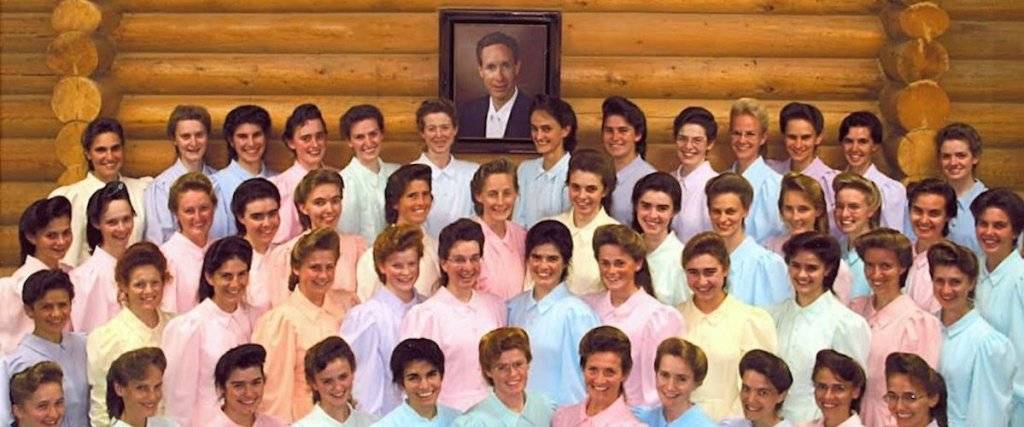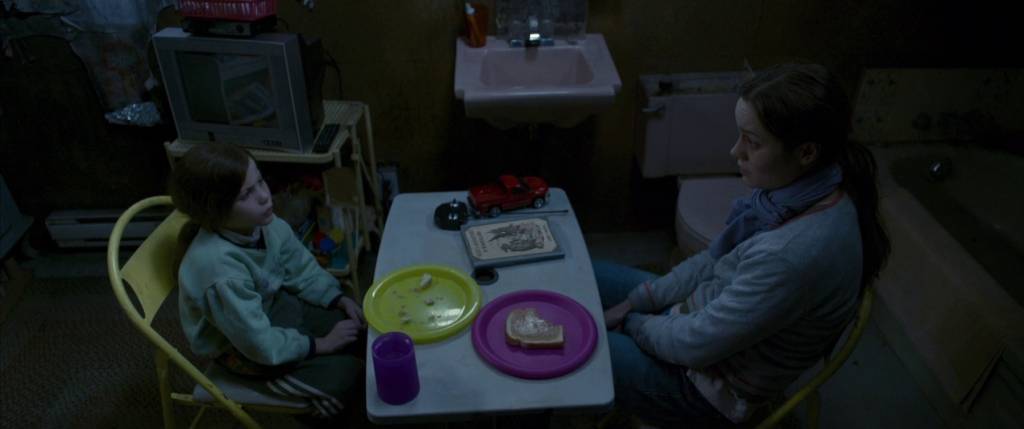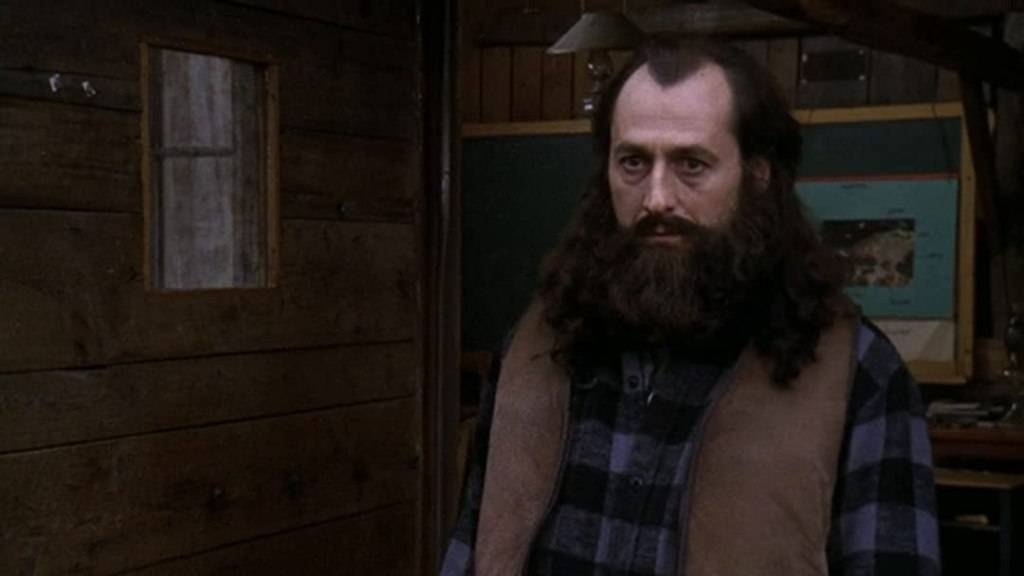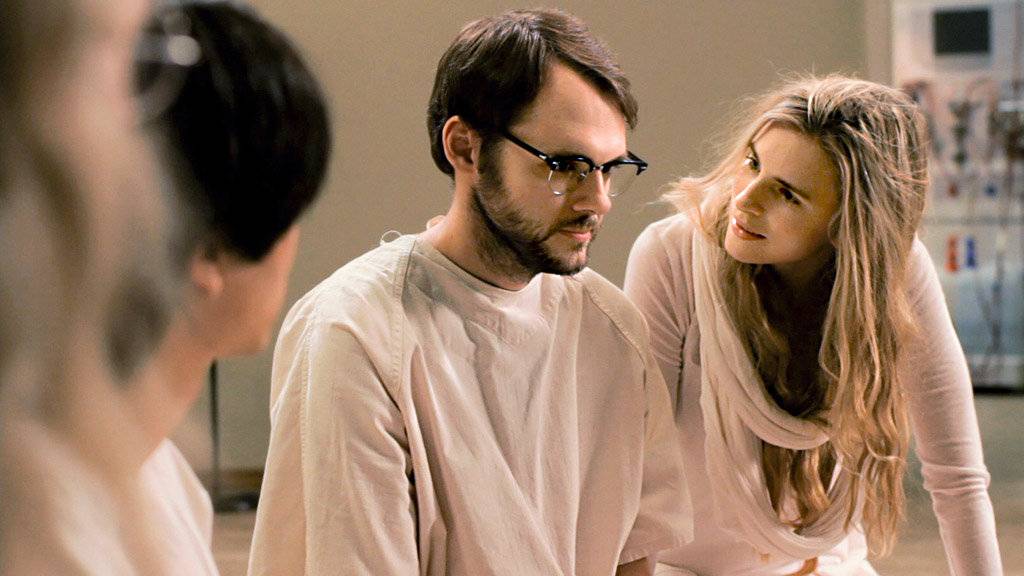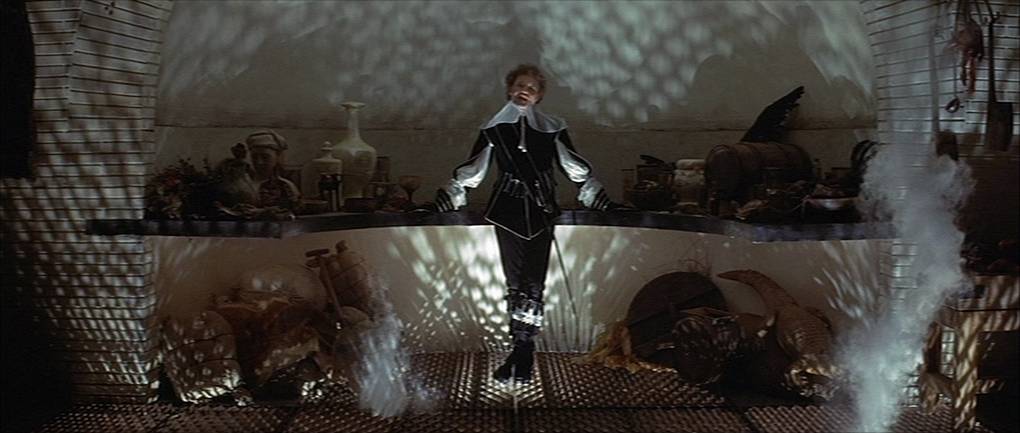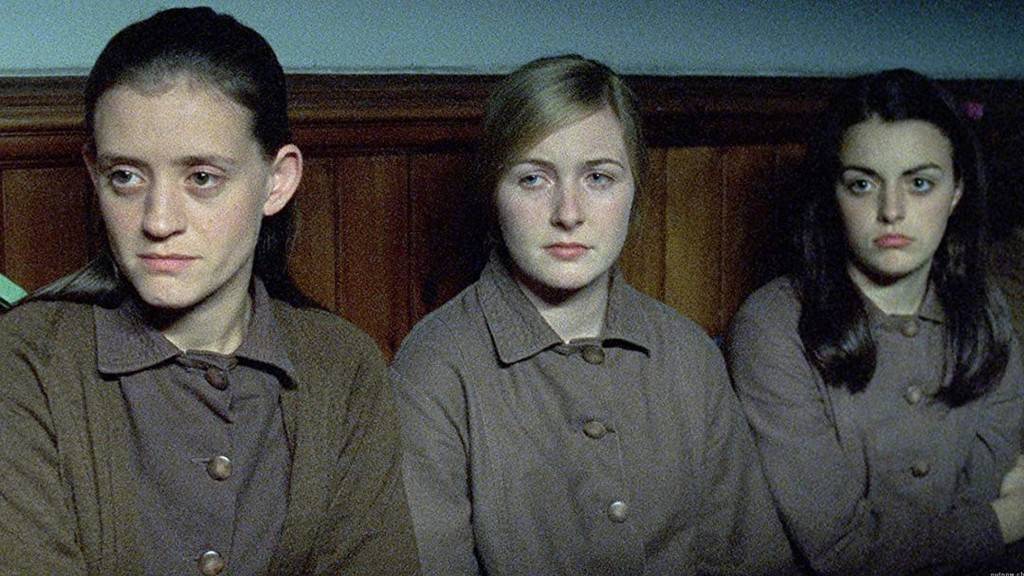The film “Women Talking,” written and directed by Sarah Polley, delves deeply into a group of Mennonite women’s horrific sexual assault experiences and their subsequent effort to put an end to it. The drama film highlights their difficult choices in the midst of the circumstance that endangers their life. They have three options. The ladies are confined to a section in the year 2010 where the town is ruled by religion.
In addition, after the traumatic events, the women in the community find it difficult to reconcile their religious beliefs. The film is based on real events and features an ensemble cast that includes Rooney Mara, Claire Foy, Frances McDormand, and Jessie Buckley. The selections below are ideal if you wish to see movies that have a strong connection to cults and communities. The majority of these films that are comparable to “Women Talking” are available on Netflix, Hulu, or Amazon Prime.
Charlie Says (2018)
The historical drama film “Charlie Says,” which was directed by Mary Harron, is based on the actual account of the Manson Family and Charles Manson’s involvement in the killings of many people in the summer of 1969. Three of Manson’s female followers—Susan Atkins, Patricia Krenwinkel, and Leslie Van Houten—have their stories followed in the movie.
A graduate student visits the women while they are serving their prison terms for their roles in the killings in an effort to help them comprehend the degree of their involvement and the effects of their actions on the victims and their families. The movie examines violence’s effects, cult mentality, and manipulation. Women in Charlie’s life act against him and regain their lives without fear, just like in “Women Talking.”
Going Clear: Scientology and the Prison of Belief (2015)
The questionable history and practises of the Church of Scientology are examined in the Alex Gibney-directed documentary “Going Clear: Scientology and the Prison of Belief.” It is based on Lawrence Wright’s book of the same name and includes interviews with former church members, including senior leaders who have subsequently left the group.
The documentary explores the history of Scientology, its creator L. Ron Hubbard, and the strategies the organisation use to draw new members and keep existing ones. It also examines the allegations of mistreatment, deceit, and manipulation made against the church. The movie also looks at the church’s practises and beliefs and how they affect its members. The fundamental themes of both this documentary and “Women Talking” are religion and sexual needs.
Holy Smoke! (1990)
Jane Campion’s drama movie “Holy Smoke!” with Harvey Keitel and Kate Winslet in the lead roles. It centres on Ruth Barron, a young lady who joins a cult while visiting India. Under the sway of the charismatic group leader, she returns to her native Australia.
The two engage in a battle of wills as they attempt to outwit each other after Ruth’s family employs a skilled deprogrammer to bring her back to reality. The movie also looks into issues including cult hazards, control, and manipulation. This movie explores a woman’s attempts to leave a cult and pursue a normal life, much like “Women Talking.”
Martha Marcy May Marlene (2011)
In the psychological thriller movie “Martha Marcy May Marlene,” a young woman named Martha flees a cult and finds shelter with her sister Lucy. She finds it difficult to adjust to life outside of the cult since she is plagued by flashbacks about her time there and its charismatic leader, Patrick.
In order to move on with her life, Martha must face her previous trauma as her mental state deteriorates and it becomes apparent that she is not as safe as she believes. The movie also tackles issues like identity, deception, and the perils of cults. Both “Women Talking” and “Martha Marcy May Marlene” explore the mental state of a woman who participates in a cult.
Prophet’s Prey (2015)
In her film “Prophet’s Prey,” director Amy J. Berg examines the origins and customs of the Fundamentalist Church of Jesus Christ of Latter-Day Saints (FLDS), a polygamous sect headed by Warren Jeffs. It is based on Sam Brower’s book of the same name, a private detective who has spent years looking into the cult. It includes interviews with former FLDS members and law enforcement personnel who have worked to prosecute Jeffs and other cult members.
The film also looks at the FLDS’s history, its beliefs, and the charges of abuse, corruption, and cover-up that have been brought against the sect. Furthermore, just like the film “Women Talking,” the basis of the film is based on cult dealing and the consequences that follow.
Room (2015)
Lenny Abrahamson’s drama movie “Room” is based on Emma Donoghue’s book of the same name. It centres on Joy, a young woman who has been imprisoned by a man only known as Old Nick for seven years in a small chamber. In spite of the challenging conditions, she gave birth to a baby named Jack while she was being held captive.
When Joy and her son manage to escape, they must navigate the outside world and deal with the trauma they’ve endured. Also covered in the movie are resilience, mother-child relationships, and trauma. The central themes of “Women Talking” and “Room” both revolved around sexual assault and its consequences.
Savage Messiah (2002)
Mario Philip Azzopardi’s film “Savage Messiah” follows the adventures of Paula, a social worker. The film, which is set in Ontario in the 1980s, delves into the deeds of a dishonest and brutal communal leader. Paula becomes involved in the issue as she learns more about the community’s leader and its actual conditions. The atrocities and wrongdoings committed by the cult leader Moise are at the centre of the film. The drama film also demonstrates how powerful and cunning individuals like Moise may take advantage of defenceless individuals. Paula, on the other hand, goes to great lengths to separate the cult members from Moise. In “Women Talking” and “Savage Messiah,” people who are trapped in a commune and find it difficult to leave describe their experiences.
Sound of My Voice (2011)
Brit Marling and Christopher Denham feature in Zal Batmanglij’s psychological thriller “Sound of My Voice.” It centres on Peter and Lorna, two documentary filmmakers who infiltrate a covert cult headed by Maggie. The cult members believe she is a time traveller from 2054 who has come to save them from an impending disaster. Peter and Lorna become enmeshed in the cult’s philosophy as they work to expose Maggie as a phoney, which causes them to doubt their own convictions. In addition, “Women Talking” and “Sound of my Voice” explore how women suffer inside oppressive communities.
The Devils (1971)
Based on Aldous Huxley’s 1952 book “The Devils of Loudun,” the historical drama film “The Devils” was directed by Ken Russell. A group of nuns led by Sister Jeanne accuse Father Urbain Grandier (Oliver Reed), a dynamic and contentious priest, of witchcraft and heresy in this historical drama set in 17th-century France.
Grandier consequently finds himself caught up in a web of political intrigue as the nuns’ claims gather traction and is subjected to a succession of increasingly harsh punishments from the state and the church. The movie is renowned for its contentious themes and vivid depictions of sexual and violent acts. Because of this, “The Devils” and “Women Talking” combine religious themes with discussions of sexual assault and how it affects survivors’ quality of life.
The Magdalene Sisters (2002)
Peter Mullan’s historical drama movie “The Magdalene Sisters” takes place in 1960s Ireland. Three young ladies, named Margaret, Bernadette, and Rose, are the subjects of the tale. They are accused of sexual promiscuity and are consequently transported to the Magdalene Asylum convent.
The nun-run monastery functions as a reformatory where the women are made to endure arduous labour and harsh treatment as atonement for their alleged transgressions. Throughout addition, issues of abuse, repression, and the fight for freedom and self-determination are explored in the movie. The film “Women Talking” presents related ideas as well.

